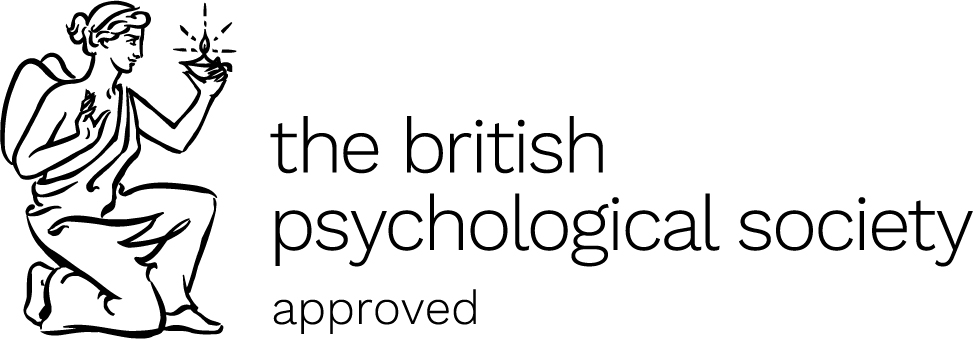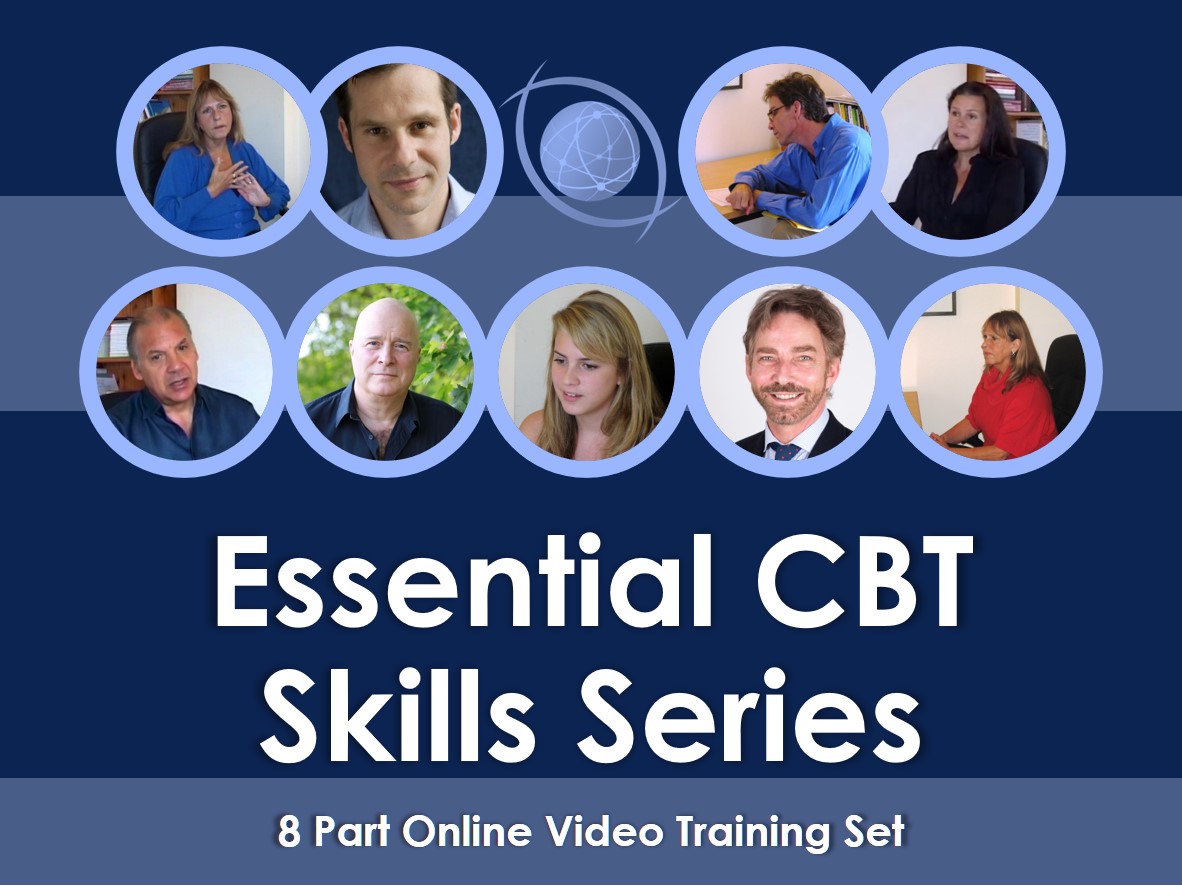
Course Brief
Our most popular and critically acclaimed three-day intensive training on Cognitive Behavioural Therapy (CBT) - a highly effective, evidence-based therapeutic approach. The course has been developed and taught by accredited CBT therapists and multidisciplinary in nature. This course introduces you to CBT within a context of other therapeutic methods using a wide range of learning techniques: live demonstrations, video demonstrations, presentation, experiential exercises etc.
This course introduces you to Cognitive Behavioural Therapy within a context of other therapeutic methods using a wide range of learning techniques.
Our aim is to provide you with the highest possible standard of training and enable you to make immediate use of your learning.
You will leave this course with a solid grounding in CBT that you can put into practice straight away.
The course covers: the history and meaning of CBT, conceptualising cases in CBT terms, the format of a standard CBT session, and the most important CBT techniques.
At every stage of your learning theory will be constantly applied to practical examples.
We will provide you with quality seminar materials including photocopiable worksheets, checklists and forms to use with your clients.
All techniques will be illustrated either by live or video demonstrations. Delegates will practise techniques in group and pair exercises.
This course is an important part of the training programme that enables you to complete the BPS Approved Master Practitioner Diploma in Cognitive Behavioural Therapy as well as several other BPS Approved Certificates. You can gradually build up your CBT training portfolio by attending all the courses within the chosen programme at the pace that suits you. All your training hours will be calculated, recorded in an individual validated log and accumulated towards your full Diploma or Certificate.
HOW TO CHOOSE YOUR CBT TRAINING 7-point checklist:
✓ Tutor: BABCP Accredited CBT Therapist
✓ Approval: Course is Accredited/Approved by a Recognised External Body
✓ Company’s Reputation: Your own previous experience/Recommendation/Taster Sessions
✓ Practical/Theoretical Balance: So that you can have practical skills even after an introductory course
✓ Access and recording: With most companies teaching online – make sure that you have a recording for free after the session
✓ Post - course support: Free post-course tutorials and email support
✓ Opportunity to build on: Working towards the larger Certificates and Diplomas that take into account your initial training
Day 1
- Introduction group members, facilitator, course objective and timetable
- Learning expectations
- History of CBT. What is CBT now? Constructivist exercise
- Goal setting (SMART). Learning goals for this course.
- Structure of session, therapeutic alliance
- Agenda setting/session bridging. (Examples & exercise of agenda setting)
- Maintenance formulation. Hot Cross Bun.
- Basic CBT conceptualization.
- Beck’s triad. How can knowledge of Becks triad enhance the hot cross bun model?
- Thinking errors. Working with cognition (hot cognition, thought records)
- Cognitive restructuring: Socratic Method, balance of evidence table
- Homework effect on treatment outcome – how to set up homework tasks
Day 2
- Review and timetable for day 2. Setting day’s objective
- Check out home work – how to evaluate homework use of diary, how to overcome difficulties
- CBT developmental model (J Beck)
- Characteristics of core beliefs and dysfunctional assumptions
- Identifying core beliefs downward arrow technique
- Eliciting negative assumptions and modifying them
- Techniques to modify dysfunctional assumption and beliefs
- Positive thought log and other techniques to modify higher order cognitions
- Setting up behavioural experiments / surveys
- Designing behavioural experiments to confirm or disconfirm those beliefs
- Principle of Behavioural Activation. Explain how to fill in an activity log
- Alternative, additional behavioural methods (exposure, desensitization)
- Homework behaviour experiment. End of the day round ‘What have I learnt’
Day 3
- Review and timetable for day 3. Setting day’s objective
- Check out home work. Review homework – how to use “wrong results” in therapeutic practice
- Functional analysis. Classical ABC
- Modification of antecedents and consequences
- Role of Monitoring, Scales and standardised questionnaires
- Progress monitoring formal scales, self constructed scales
- Closure of therapy – therapy blue print and relapse prevention
- How to formulate a treatment plan
- Review of course goals and progress monitoring
- Feedback in written form
- Summary and closure
There is a heavy reliance on video and live demonstrations of techniques, combined with specially developed exercises that allow participants to practise the skills learnt.
BOOKING OPTIONS:
-
This article from Christine Padesky explains Socratic Questioning – one of the important CBT techniques.
PLEASE read this article as this will be referred to on the first course day:
C. Padesky (1993): Socratic questioning: Changing minds or guiding discovery?
It is available from the "Publications" section and then the "Fundamentals" tab
-
The following article outlines the historic content and main characteristic of CBT.
Click here for the full SDS Accreditation terms for the BPS Approved Master Practitioner Diploma in CBT: https://skillsdevelopment.co.uk/certificates/cbt_diploma/
-
What does British Psychological Society Approval for this course mean?
SDS Seminar’s CBT: Introductory Course (Certificate) is Approved by the British Psychological Society (BPS). The British Psychological Society is established by Royal Charter and is the Keeper of the Register of Chartered Psychologists. BPS Approval means that the certificate course meets the Society’s five course quality standards. Delegates who complete the course will receive their Certificates with the BPS Logo and the Approval Statement. BPS Approved courses can be found on BPS website.
Course Tutor
Testimonials
Recommended Materials

Essential CBT Skills - 14 CPD Hours
Watch live demonstrations of Essential CBT Techniques followed by a detailed analysis and informed explanation by Accredited CBT therapists: Dr Tom Werner and Consultant Clinical Psychologist Paul Grantham. This training video concentrates on introducing the viewer to Cognitive Behavioural Therapy (CBT) through a combination of demonstration, discussion and reflection. This training video consists of 8 parts:
- Agenda Setting
- Downward Arrow Technique
- Working with Negative Assumptions
- Continuum Work
- Cost – Benefit Analysis
- Activity Log
- Behavioural Experiments
- Cognitive Restructuring of Negative Automatic Thoughts






